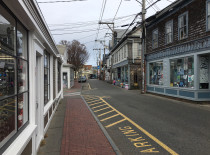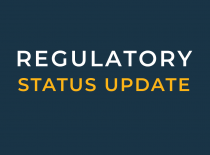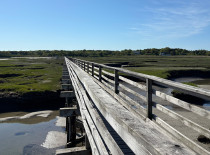Category: Newsletter
High-speed internet. Reliable devices. Affordable service. For many Cape Codders, these basic tools for participating in the digital world remain out of reach. As everyday life becomes increasingly dependent on digital access — for work, education, healthcare, and civic engagement — ensuring that every resident can connect affordably and reliably is no longer optional. It is essential.
Cape Cod’s longtime LGBTQ history is deeply intertwined with the region’s artistic and cultural evolution, particularly in Provincetown, which became a haven for LGBTQ individuals in the early 20th century. Drawn by the town’s reputation for inclusiveness and creativity, artists, writers, and performers, including prominent LGBTQ figures like Tennessee Williams and poet Mary Oliver, flourished in the supportive environment.
A status on projects currently under review by the Cape Cod Commission.
The Cape Cod Climate Action Plan encourages the region to support low- and no-carbon transportation alternatives, expand charging infrastructure, and promote programs that increase EV adoption. Since 2020, EV ownership on Cape Cod has nearly tripled, and charging infrastructure continues to grow. The Cape Cod Commission supports this progress through a range of initiatives, including several new programs focused on expanding EV access, improving infrastructure, and promoting equity.
The Cape Cod Commission is developing program frameworks to preserve and expand year-round housing opportunities. This work, undertaken in partnership with Outwith Studio, builds on recommendations outlined in the Cape Cod Regional Housing Strategy and aims to identify practical, effective ways to incentivize and support year-round residents.
With support from a state grant, Cape Cod Commission interns are compiling a comprehensive inventory of outdoor recreational areas across the region. The project will consolidate data from towns, land trusts, and planning documents into an online map and statewide database. The goal is to improve access to information about parks, trails, and other open spaces for residents and visitors alike.
Traffic technicians are collecting data across Cape Cod to support the implementation of the Vision Zero Action Plan and other planning efforts. Interns are installing traffic counters, assessing pavement conditions, and responding to town data requests. Their work provides critical input for safety improvements and infrastructure planning while offering students hands-on experience in engineering and data analysis.
With support from a grant awarded by the Massachusetts Office of Outdoor Recreation (MOOR), within the Executive Office of Energy and Environmental Affairs, the Commission will collaborate with the Cape Cod Chamber of Commerce and the Compact of Cape Cod Conservation Trusts to create a comprehensive database featuring detailed site descriptions and images of recreational areas across Cape Cod. The project aims to improve planning and public access to information about the region's diverse natural resources.
May is Bay State Bike Month, a celebration of two-wheeled transportation organized by MassBike, the state's bicycle advocacy organization. This month-long event highlights the many benefits of biking and encourages more people to try it. On Cape Cod, a number of projects are underway to improve access for cyclists and pedestrians, bringing the region closer to realizing Vision 88, an effort to create a network of off-road shared use paths from Woods
May is National Historic Preservation Month, a time to celebrate the importance of preserving the places that shape our communities and reflect our shared history. On Cape Cod, historic preservation plays a vital role in protecting the character and charm that define the region.








